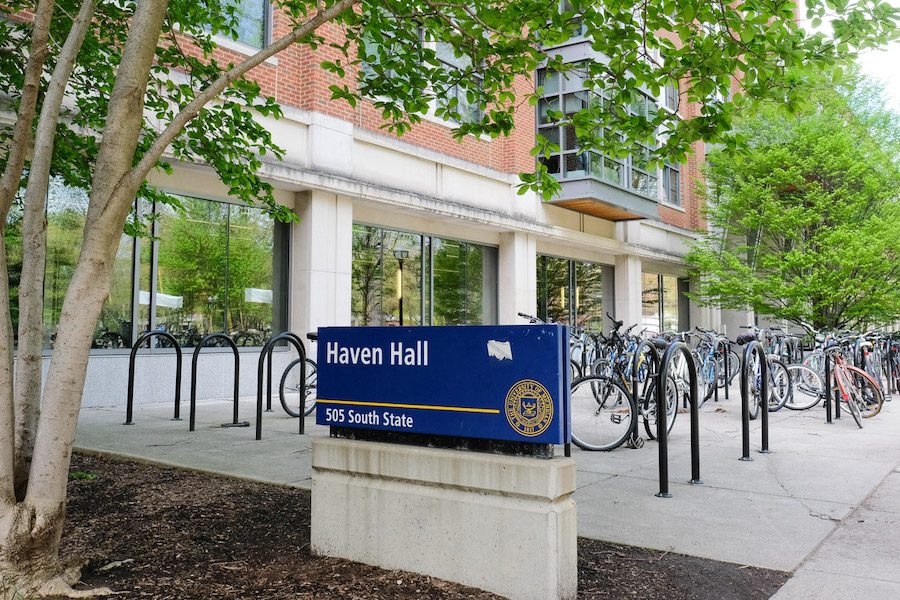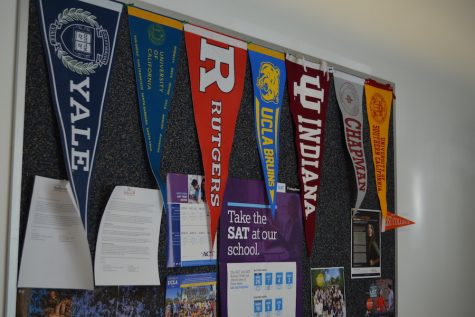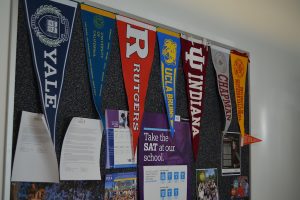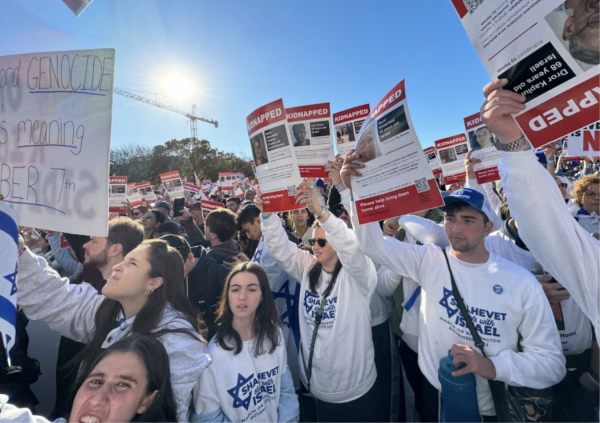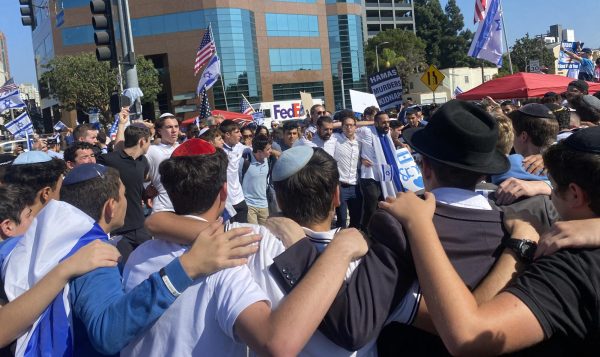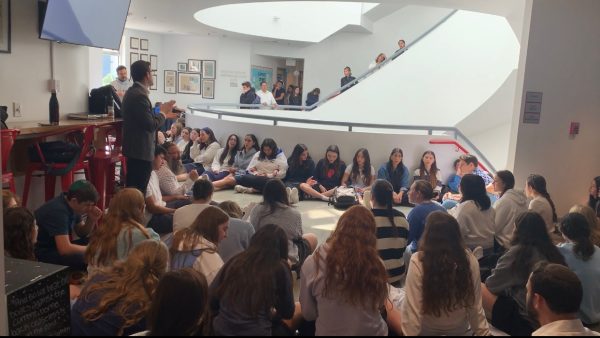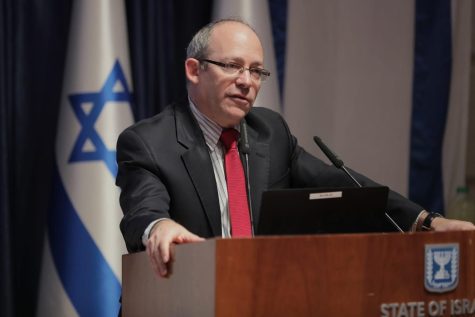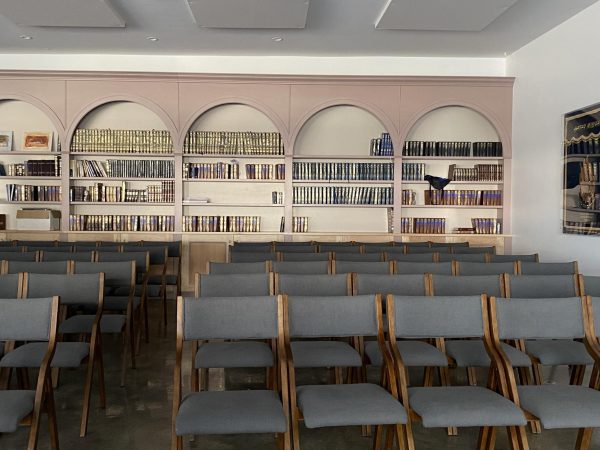Michigan professors open new front in academic boycott of Israel
Boycott ‘includes writing letters of recommendation for students planning to study there,’ professors tell two Israel-bound students
cse.umich.edu
MICHIGAN: The University of Michigan’s Haven Hall, where the American Culture Department has its offices. The department adopted a BDS statement but does not require professors to follow its recommendations.
Unlike most acts of Israel boycotting on college campuses, which are led by student groups, two students at University of Michigan were denied letter of recommendation letters to study abroad in Israel, and academics were the ones responsible.
The students, Jake Secker and Abigail Ingber, are both juniors at the University of Michigan. Abigail, who attended Watchung Hills, a public high school in New Jersey, initially sent an email in August requesting a recommendation letter to study abroad.

After a few back-and-forth emails involving the deadline for the letter, Professor John Cheney-Lippold emailed her after having re- ceived the form, saying he couldn’t write the letter because he was involved in a boycott against Israel.
“When Abby got the email, we have a family group chat on text, and she wrote ‘Oh my God!’ and sent a picture of the letter,” said Abigail’s mother, Mrs. Sharon Ingber, in an interview with The Boiling Point. “We were just shocked.”
Professor Cheney-Lippold, who is an Associate Professor of Digital Studies, is a member of the American Studies Association, a national academic organization that endorses BDS.
The organization’s resolution does not, however, require professors to refrain from writing students letters of recommendation to Israeli institutions.
“Our resolution understands boycott as limited to a refusal on the part of the Association in its official capacities to enter into formal collaborations with Israeli academic institutions,” ASA’s endorsement statement says, “or with scholars who are expressly serving as representatives or ambassadors of those institutions, or on behalf of the Israeli government, until Israel ceases to violate human rights and international law.” in their council statement.
Professor Cheney-Lippold told the Boiling Point that he was not talking to news media at the moment. But in his letter to Abby Ingber Sept. 5 he explained his reasoning.
“I am very sorry, but I only scanned your first email a couple weeks ago and missed out on a key detail,” he wrote to Abby in the letter, a screenshot of which was made available to the Boiling Point by the Ingber family.
“As you may know, many university departments have pledged an academic boycott against Israel in support of Palestinians living in Palestine. This boycott includes writing letters of recommendation for students planning to study there.”
Although Abigail did end up getting the letter she needed, according to her mom, she had to get it from someone else, though they declined to say who.
The issue has brought up complex questions about academic freedom, which is the idea that the political, religious or other beliefs of both students and professors should be protected.
Prof. Cheney-Lippold has tenure — a designation given to professors or teachers that makes their appointments virtually permanent — and he therefore cannot be fired, though many students and even a change.org petition. Change.org said the petition has thousands of signatures. wanted him to be.
[edsanimate_start entry_animation_type= “shake” entry_delay= “0” entry_duration= “1” entry_timing= “linear” exit_animation_type= “” exit_delay= “” exit_duration= “” exit_timing= “” animation_repeat= “1” keep= “yes” animate_on= “scroll” scroll_offset= “60” custom_css_class= “”]
“Many university departments have pledged an academic boycott against Israel in support of Palestinians living in Palestine. This boycott includes writing letters of recommendation for students planning to study there.
— Professor Cheney-Lippold, University of Michigan
[edsanimate_end]
The university did discipline him, however, by not giving him a merit raise in the 2018-19 school year, and denying him an upcoming sabbatical leave he had planned, or any sabbatical for the next two years.
“We know it’s very hard for a professor to get fired once they are on tenure, so we think what they did to him was good,” Mrs. Ingber said. “They’re watching out, so we were happy with what the school did.”
The situation involving Jake Secker happened around a month later. Jake wrote to Ms. Lucy Peterson, a Jewish graduate student instructor of political science at University of Michigan, on Oct. 1 asking for a letter of recommendation to study abroad. Ms. Peterson agreed to write it the same day.
“Totally, I’d be delighted,” she responded.
However, after Jake told her he was applying to Tel Aviv University, she changed her mind. Although she declined to be interviewed by the Boiling Point, she wrote an Op-Ed for the Michigan Daily about her decision.
“I chose to articulate my reasoning to this student rather than hide behind other reasons,” Ms. Peterson explained in the piece. “I made this choice in the spirit of honest and deeply personal intellectual exchange. I take my role as an educator at this institution very seriously.”
The denial of the letters was not the only recent anti-Israel occurrence at the university. On Oct. 4, a guest lecturer at the Penny Stamps School for Art and Design screened an image that compared Israeli Prime Minister Benjamin Netanyahu to Adolf Hitler, saying both were “guilty of genocide.”
Last year, on Nov. 15, 2017, the university’s student government passed a resolution calling for the university to consider and investigate the idea of divesting from companies that do business
with Israel. However, the majority of University of Michigan’s Board of Regents signed a statement expressing opposition to the resolution one month after it was passed.
Shalhevet alumna Nicole Feder ‘15, currently a junior at University of Michigan, said hese incidents have made the students more aware of anti-israel rhetoric, but have not changed the overall atmosphere for Jewish students.
“At first students were kinda shocked by what has been going on,” said Nicole. “You don’t necessarily feel it on campus on a day-to-day basis, but it’s definitely something that we think about and work to combat.”
[edsanimate_start entry_animation_type= “shake” entry_delay= “0” entry_duration= “1” entry_timing= “linear” exit_animation_type= “” exit_delay= “” exit_duration= “” exit_timing= “” animation_repeat= “1” keep= “yes” animate_on= “scroll” scroll_offset= “85” custom_css_class= “”]
“You don’t necessarily feel it on campus on a day-to-day basis, but it’s definitely something that we think about and work to combat.
— Nicole Feder, UMich junior
[edsanimate_end]
According to Nicole, on Oct. 11, the university’ pro-Israel community joined together and wore blue and white to demonstrate opposition to the denied recommendation letters and guest lecturer. She also said groups are hosting different events as well to “show Israel in a positive light.”
Ms. Aviva Walls, Director of College Counseling and Academic Guidance, says that she wouldn’t recommend University of Michigan any less to Shalhevet seniors — but that she would mention the incidents to students who made clear they prefer colleges without large BDS activity.
Still, she thinks it’s important for there to be educated students on such campuses to fight anti-Israel and anti-semitic rhetoric.
“The reason why there was such a huge response was because the student who was denied the letter made a big deal out of it,” Ms. Walls said.
“Had it been a student who had less information or education, that student might have felt bad about wanting to attend an Israeli institution rather than fight and say what the professor did was wrong. I think it’s important for Jewish students to be in those places.”
According to Ms. Walls, there are somewhat fewer Shalhevet students applying to University of Michigan this year than normal, but she said it was probably normal variation and most likely not a result of the anti-Israel rhetoric.
Shalhevet senior Ari Reder said he believes the professors should have been able to withdraw from writing the letters.
“It’s definitely unfortunate that people are anti-Israel and everything like that, but I think people are entitled to their own opinions,” said Ari. “Our constitution says freedom of your opinion, so I guess if he has something against Israel then it’s unfortunate, but I think if he really doesn’t want to write the letter he shouldn’t be obligated to.”
Lily Drazin, another senior at Shalhevet, has a sister at University of Michigan and considers her family big supporters of the school.
“I definitely think she’s gotten more defensive of the school and I definitely think that was hard for her to experience,” Lily said, describing her sister Jennie, who graduated from Shalhevet in 2014. “She’s still keeping her head high and she still loves everything about the school.”
Lily said she thinks incidents such as this should be taken into account when applying to colleges, but that in this circumstance it doesn’t affect her support for the school.
“Anti-semitism exists on college campuses — it happens,” she said. “I would say that our support for Michigan is still there because the school as a whole is still a great educational institution that has given thousands of students, including my sister, an amazing college experience and one professor’s opinion shouldn’t undermine that.”
CORRECTION: An earlier edition of this story mistakenly pictured the Bob and Betty Beyster Building instead of Haven Hall.
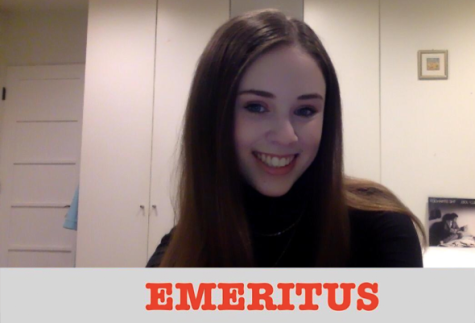
Molly is studying at Midreshet Torah v'Avodah seminary in Jerusalem and will attend Columbia University in New York next year.

